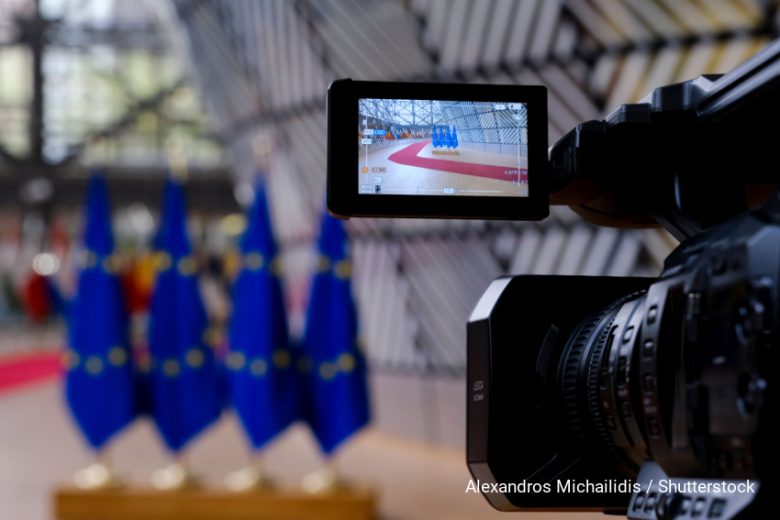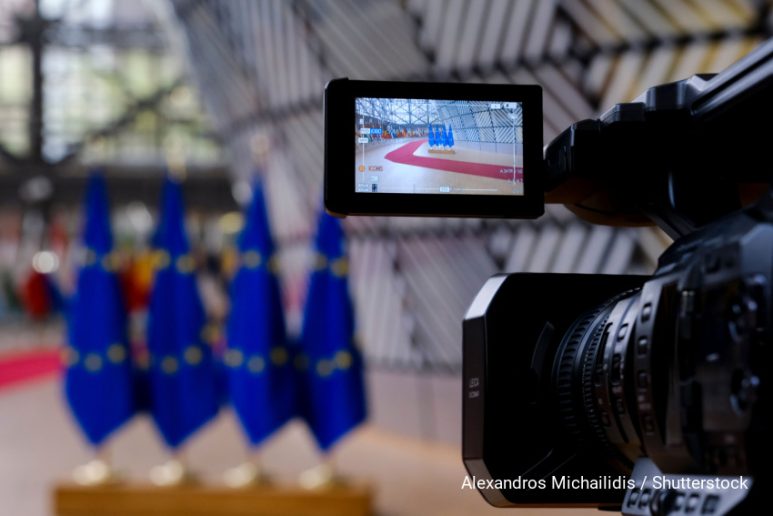By Hannah Ajala
The European Media Freedom Act is a proposed Regulation that includes, among other things, safeguards against political interference in editorial decisions and against surveillance. It puts a focus on the independence and stable funding of public service media, the transparency of media ownership, and the allocation of state advertising. It also sets out measures to protect the independence of editors and disclose conflicts of interest. Finally, the Act will address the issue of media concentration and create a new independent European Board for Media Services, comprised of national media authorities.
MDI spoke with experts in the field to shed light on what the European Media Freedom Act means for diversity and more generally.

This is the first interview of our series on the European Media Freedom Act.
Thomas Bergmann, Senior EU Policy Adviser, EBU Legal & Policy
MDI: What does The European Media Freedom Act mean?
TB: The European Media Freedom Act (EMFA) is the EU’s attempt to stop the decline in media freedom and pluralism that we can observe in some Member States. It enshrines important principles for Member States to ensure that media can operate freely and independently. In that regard, it is positive that the proposed Regulation recognizes the particular role of public service media for democracy and aims at protecting its independence. However, the proposal clearly lacks ambition in addressing the problems media face in relation to big platforms, user interfaces and devices which act as bottlenecks for audiences to access and find media content and services. These gatekeepers negatively affect media freedom and pluralism in Europe, mostly serving commercial objectives.
MDI: What will happen if it is implemented?
TB: If, after the legislative process has completed, the EU has a strong text, the EMFA could make a real difference for media freedom in Europe. However, we are still early days and public service media see clear areas for improvement in the current proposal.
In the best-case scenario, the EMFA will set high-level obligations on Member States and address specific behaviour of digital gatekeepers that negatively affects the findability of regulated media services in the online environment. If correctly implemented and enforced, the EMFA will thus prevent unjustified and arbitrary interference by political and economic actors to a certain degree in the future.
The Act will also aim to increase regulatory cooperation across the EU. This could positively contribute to a better regulated media landscape for two reasons: First, intensified cooperation among media regulators could promote best practices and thus support regulators in finding regulatory solutions. Second, it could be a vehicle to exert peer pressure on governments that are drifting away from European standards.
MDI: What does it mean for diversity?
TB: We are particularly hopeful that the EMFA will promote media freedom and pluralism online. Currently, platforms decide which content is seen based on their algorithms and content moderation policies. Also, commercial objectives often determine which media is prominently placed, for example on Smart TVs or remote controls. The EMFA could make a difference here and ensure that audiences have access to a wide range of media providers and diverse content, including from public service media.
Photo Credits: Alexandros Michailidis / Shutterstock

